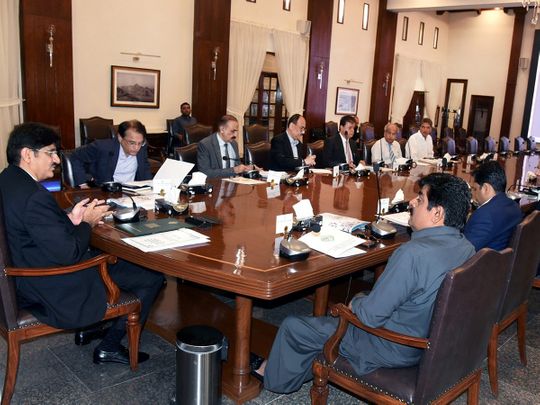
Karachi: Sindh Chief Minister Syed Murad Ali Shah has approved a project to establish 125 micro-schools in suburban areas of Karachi and Hyderabad that will employ the method of the latest digital learning to tackle the issue of out-of-school children in the province.
The CM took the decision to this effect while chairing the meeting of the board of governors of the Sindh Education Foundation — autonomous body that promotes literacy in the province through non-profit initiatives.
Each of the proposed micro-schools will employ smartphones and tablets for implementing effective learning programmes for the benefit of children from deprived families. Each of the schools, to be built in two months’ time, is expected to enroll nearly 125 students. It will especially use computer software and games to teach the subjects of science and mathematics.
The programme will be implemented as a pilot project to benefit 10,000 out-of-school children and 2,500 already enrolled pupils from the deprived communities in Southern Sindh. After the success of the pilot project, the plan will be implemented all over Sindh for benefiting hundreds of thousands of children.
The CM directed the Sindh Chief Secretary to immediately release funds for executing the project. He noted that digital learning systems had to be employed to overcome the crisis in the education sector that had become aggravated due to devastating floods in the province last year that massively damaged educational infrastructure.
Education Minister Syed Sardar Ali Shah said estimates indicating that up to six to seven million children were out of school in Sindh were not authentic.
But if one accepts these estimates to be accurate then Sindh needs another 25,000 schools and 150,000 additional teachers for tackling illiteracy, he said.
The Minister said that the digital learning system proved to be an effective method to tackle the issue of out-of-school children at such a mass scale without any involvement of new large-scale schooling infrastructure and teachers.
He said the system had also proved its effectiveness in the recent coronavirus emergency when millions of children relied on it for education after the closure of the schools.












